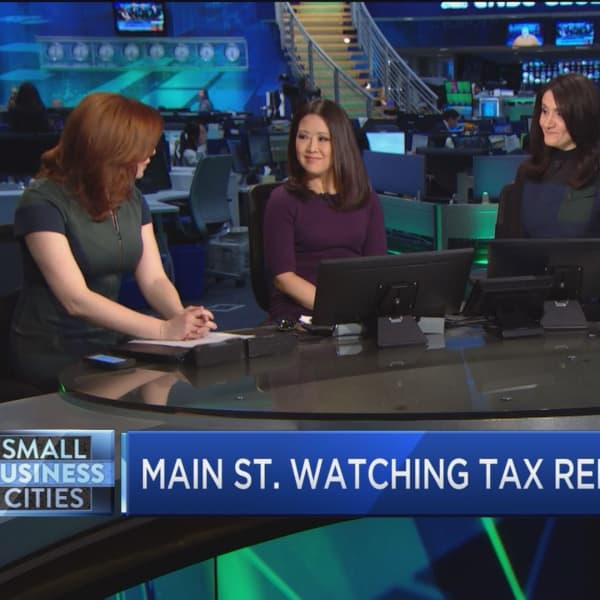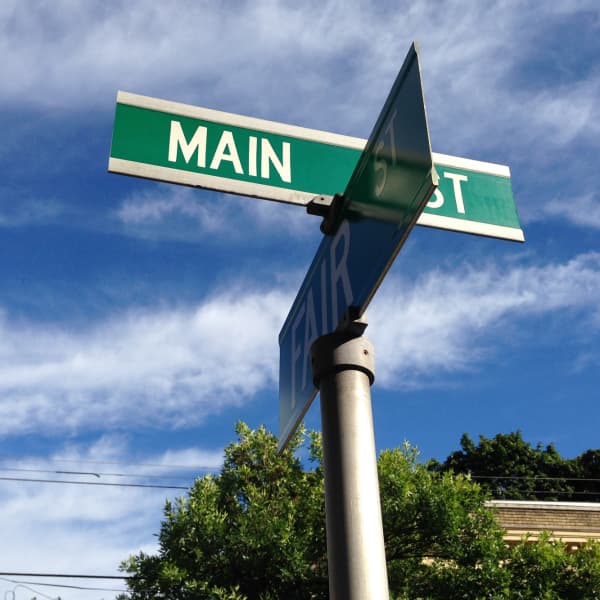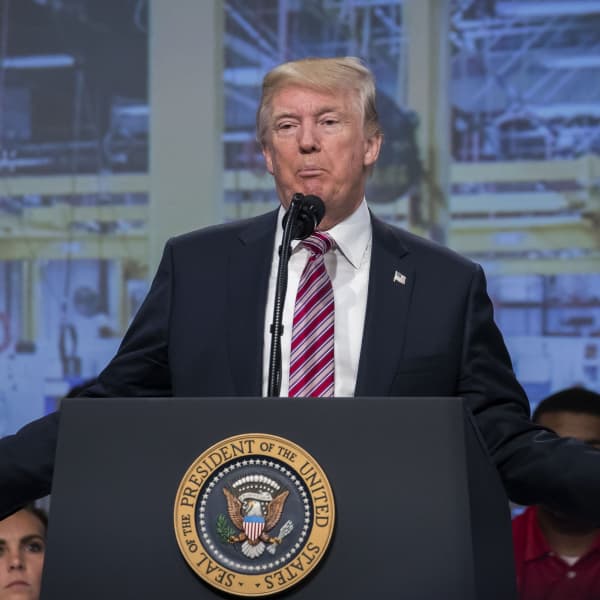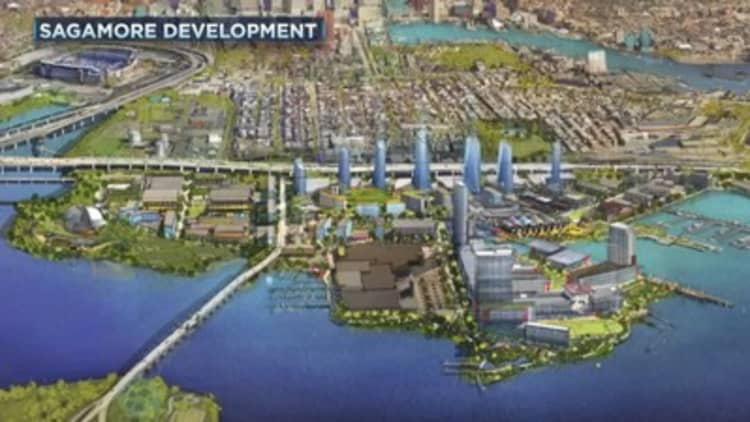
Kevin Plank's underdog story has become synonymous with Baltimore — the city his company Under Armour calls home.
Now his investment company, Plank Industries, is looking to rebuild an entire area of the city. Billions of dollars will be poured into Port Covington in one of the largest urban redevelopment projects in the country, which will include housing, retail and an entrepreneurial ecosystem.
"We often say that jobs are great, careers are better, and ownership is best," said Plank Industries CEO Tom Geddes. "If we can build a place that has a culture around entrepreneurship, small businesses growing into large businesses and general opportunities — we can give a boost to Baltimore City at a time when it is really needed."
The Port Covington project is already under way with the newly opened City Garage building, which houses three different arms — the Foundry, which is a maker space; Main Street, which is for companies who are pursuing Made in America products and services; and the Under Armour Lighthouse, a testing facility. Several companies, from a whiskey maker to a skateboard manufacturer, currently call City Garage home. Geddes said Plank Industries has invested some $10 million into some 12 businesses operating there.
The billion-dollar bet
The entire Port Covington redevelopment will cost more than $4 billion, according to Plank Industries — local media have pegged the price tag even higher, at $5.5 billion. Funding will come from an undisclosed Plank Industries investment, as well as city, state and federal funding, along with income from future tenants and businesses. The project aims to create tens of thousands of jobs — some temporary and some permanent. The master plan, which will take between 15 and 20 years to execute, has been approved by the city, as has $500 million in tax increment funding.
Mayor Stephanie Rawlings-Blake has hailed the project the "next chapter in Baltimore's future."
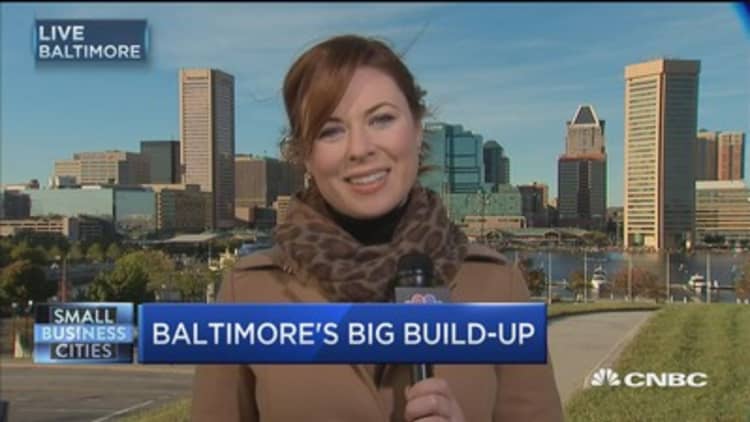
Baltimore is also making strides in moving past some of the physical damage done during riots that broke out in the wake of Baltimore resident Freddie Gray's death in police custody in April 2015. The Baltimore Development Corporation established the Baltimore Business Recovery Fund to provide zero-interest loans for up to $35,000. If the stores stay open for two years, the loans will be 100 percent forgiven, according to BDC managing director Susan Yum.
The BDC identified approximately 400 businesses suffering from property damage and/or inventory loss. In addition to that, the BDC modified an existing façade-improvement grant program and offered storefront recovery grants for up to $5,000 to be used for exterior repairs, which were "sufficient enough for many to reopen."
So far, the BDC has distributed just over $900,000 in 105 grants and loans; approximately 93 percent of businesses who received funding reopened.
People who aren't from Baltimore or don't know much about it often have negative perceptions. ... [Baltimore residents] have a chip on their shoulder to prove to the rest of the world that Baltimore really is a great place.David Narrowco-founder of Baltimore-based Sonavex
Beyond Plank Industries' massive footprint, Baltimore's affordability, educational feeder system and accessibility are among the reasons entrepreneurs are laying down roots. The city ranked as a top 20 metro in 2015 for start-up activity, with 69 start-ups for every 1,000 firms and 1,045 small businesses for every 100,000 residents in the area, according to data from the Kauffman Foundation.
World-renowned medical research facility Johns Hopkins has expanded its footprint in the world of entrepreneurship, opening the FastForward tech accelerator in 2013. The center provides education, mentorship, services ranging from legal to accounting and IT, and affordable space to burgeoning companies. Since its launch, 67 companies have been licensed by Johns Hopkins University, and those based on the university's technology have raised more than $1 billion since 2012. There are currently 184 start-ups in the accelerator's ecosystem, and FastForward will continue to expand to a third on-campus location in 2017.
"Quite simply, it's about impact," Johns Hopkins University President Ron Daniels said. "The university is the largest recipient of federally allocated research funding year-over-year for the last 35 years. … Yet the impact that we were having in terms of our capacity to translate that research into services, products and drugs that would impact our patient population and other populations was not being fully exploited. We needed a physical manifestation of our commitment to the importance of transitional research."
More from Iconic's Small Business Cities:
Portland start-up boom could put California on the ropes
A 'Silicon Strip' that's rising in America's Rust Belt
A Midwestern city luring small business
Support from FastForward has led to companies like David Narrow's Sonavex — which the then-Johns Hopkins graduate student founded in 2012 with plastic surgeon Dr. Devin O'Brien-Coon and Jerry Prince, a John Hopkins engineering professor — working out of its space. Sonavex has created an ultrasound solution that detects post-operative blood clots. Baltimore has been a natural fit for his launch, with FastForward helping him raise $3.8 million from investors, including Grey Sky Venture Partners and Technology Development Corp.
"People who aren't from Baltimore or don't know much about it often have negative perceptions based on the not-so-infrequent perception that there is danger here, or issues associated with "The Wire" or the riots," Narrow said. "But when you come to Baltimore, you realize people are very friendly and supportive. … They have a chip on their shoulder to prove to the rest of the world that Baltimore really is a great place. The ecosystem is incredibly supportive; everyone is looking out for each other."



